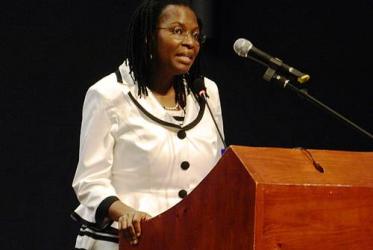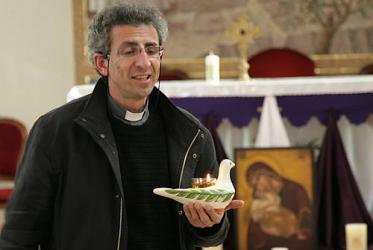Displaying 1 - 11 of 11
“Gathering in Grief” mourns Rev. Phumzile Mabizela
07 July 2021
Healing Together
A Facilitator’s Resource for Ecumenical Faith and Community-Based Counselling
15 October 2020
In Ghana, women bring open minds, honest words
05 July 2016
People of faith in Malawi work towards an HIV-free world
30 October 2012
Preventing violence and HIV pandemic in Nigeria
19 April 2012
Putting faith at work to halt the spread of HIV
24 March 2010
Israeli occupation puts strain on Palestinian Christians
02 April 2009










